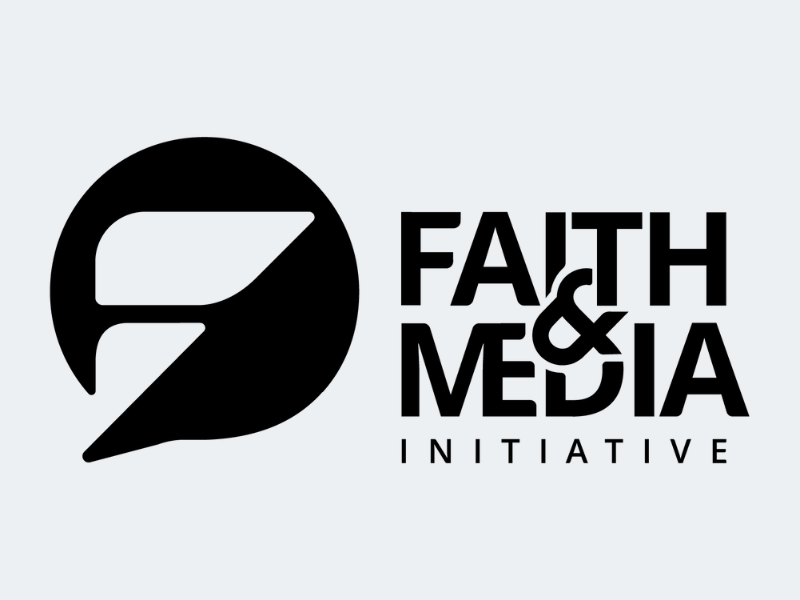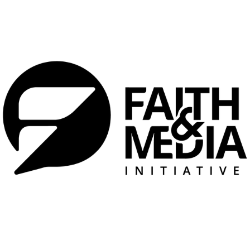Largest-ever global study reveals high consumer demand for more news on religion and faith, along with roadblocks among journalists and editors
The largest-ever Global Faith and Media Study is launched today, looking at the portrayal of faith and religion in the media. It reveals a strong demand across the world for more news media coverage on faith, despite the reality that journalists and editors admit coverage of the topics is rarely encouraged in newsrooms.
The study captures the views of 9,000 global citizens as well as journalists and editors in 18 countries covering the world's major religions. The research was commissioned by the Faith and Media Initiative (FAMI) and conducted by global market research company HarrisX.
The study reflects the feeling among the general population that media coverage can perpetuate faith-related stereotypes rather than protect against them. It also lays out some of the factors that journalists and editors think can lead to religious and faith stereotypes in news coverage.
The study also signals universal recognition among journalists and editors that coverage of faith and religion needs a reset. It captures detailed insights about the complex set of factors that have created the current status quo affecting editorial coverage.
"The data reveals that faith and religion are a core element of personal identity globally, with 82% of respondents viewing themselves as faithful, religious or spiritual," said Dritan Nesho, CEO of HarrisX. "Yet the journalists with whom we spoke to believe that faith and religious coverage are becoming increasingly marginalized due to everything from newsroom economics to fears of 'getting it wrong'.
"Ultimately, the research points to a clear global deficit in coverage, treatment and quality of understanding of faith and religion in modern media." Nesho added.
Key insights from the Global Faith and Media Study include:
People globally see the need for better representation of faith and religion in the media
- 63% of people globally said that high -quality content on faith and religion is needed in their respective countries.
- 53% of people globally believe that the media coverage actively ignores religion as an aspect of society and culture today.
- 59% of people globally think that it is important that the news media coverage reflect a diverse set of religious perspectives in their content and reporting.
- 56% of people globally agree that there should be more nuanced coverage of complex religious issues.
Religious stereotypes are a concern globally in relation to faith and religious coverage
- 61% of people globally said that media coverage often perpetuates faith-based stereotypes rather than addresses and protects against them.
- 53% of people globally think that religious stereotypes should get the same level of attention as other stereotype issues in the media.
More varied spokespeople are needed to represent faith and religion in media coverage
- More than 80% of people globally feel that faith and religious groups need to provide the media with greater variety of spokespeople.
- Journalists and editors admit there is an issue with religious stereotyping in media coverage and noted that the lack of varied media sources and spokespeople for faith organizations is a significant issue that they believe perpetuates the problem.
Media agree that editorial coverage on faith and religion has become more marginalized
- The Global Faith and Media Study uncovers the complex set of factors that have influenced the way faith and religion is covered in the media, based on direct interviews with journalists.
- Media respondents universally described a continued marginalization of media coverage on faith and religion and cited many influencing factors giving rise to increasingly unbalanced reporting:
- Newsroom Economics: Media respondents reported on squeezed budgets leading to a lack of specialist journalists in newsrooms. They cited a "hollowing" out of specialisms within the news teams leaving generalists to cover topics, including faith and religion.
- Fear of Getting It Wrong: Media described a general "fear" in the newsroom around covering religion. In an era defined by some as a time when religion has become increasingly politicized, news coverage – often at speed – brings with it the tacit acceptance that it is impossible to cover the topic with a level of nuance and sensitivity given the time and resources available.
- Diversity and Newsrooms Dynamics: Media respondents in all regions noted that the newsroom teams rarely represent the plurality of religious views in society, which causes self-limiting in exploring the faith agenda. Among journalists with a strong faith background, a feeling exists that they might be negatively judged if they covered stories relating to their faith or religion due to a concern it would raise questions about their impartiality and risk damaging their reputations in the newsroom.
- Clicks for Controversy: A consensus exists among media respondents that faith and religion are not seen as drivers for reader engagement. Editors rarely encourage stories in this area unless they correspond to a narrative of controversy, dissent or scandal. This runs counter to the 63% of people globally who said that high-quality content on faith and religion is needed in their respective countries.
- Lack of Spokespeople Compounding Religious Stereotyping: Stereotyping was identified by media respondents as an issue, with a lack of variety of sources and spokespeople for faith and religious groups noted as a significant issue that perpetuates the problem. Many media say religion is most frequently positioned as a conservative or extreme force in editorial coverage and suggested that this drives the tendency to seek out outspoken spokespeople versus those who are middle-ground more mainstream.
"This ground-breaking global study on the attitudes of people, journalists and editors toward coverage of faith and religion in media will be used as a springboard for positive change," said Brooke Zaugg, Vice President of The Faith and Media Initiative. "These new findings shine a light on the urgent need to offer faith leaders improved access to the power and reach of the news media, and media a direct line to faith leaders for enhanced understanding of beliefs in the context of modern society. "By joining forces, we can better serve humanity by ensuring a more accurate, balanced representation of all faiths in journalism and entertainment worldwide,"
You can follow the conversation for FAMI at: Twitter, Facebook, Instagram, #faithandmedia, #FAMI and for HarrisX: Twitter and LinkedIn








